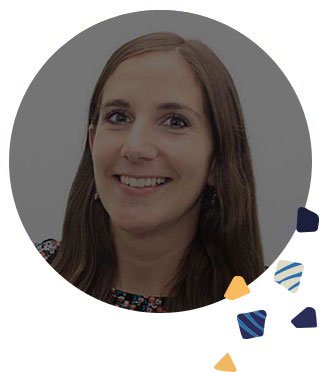Successful project manager: A day in the life of Bryony Seal
An insight into what a project manager does and what it takes to successfully reach your career goals.
Updated on: 14th October 2019
Bryony is a highly experienced project manager for a leading digital agency, whose career has seen her manage a multitude of digital marketing and build campaigns. These have been for a variety of different clients covering everything from exciting niche start ups through to huge multinational brands.

We asked some of the top commonly asked questions from people considering a career change. Read on for some invaluable advice and a detailed, real-life account of what it’s like to be a project manager.
What’s your job exactly, what do you do day to day?
“On a typical day I will spend the first few hours going through any emails or Slack messages. Slack, for those that don’t know, is an instant messaging app, designed to do away with the need for long email chains – hurrah. We also have stand ups with the team to work out how to resolve any blockers they might have.
This can be anything from a new request from the client to another part of the team not hitting their deadlines. As I said, to keep the information and project running smoothly, we have daily stand ups, so this is when members of the project team provide updates in the following format:
- What they completed/ was in progress yesterday
- What they are working on today
- What problems they might have
I will then update ‘tickets’ or queries we have on a Jira board to reflect their progress. That way, everyone has sight of where the project is progressing at any given time. Jira is a really useful project tracking tool that is used throughout the industry to track any issues or ‘bugs’ in any project.
If my team raise any issues in the stand up, I will try and resolve these as soon as we wrap up the session. Problems can generally be resolved by speaking to one of the coding, content or other in house teams. Or, obviously it can be a question for the client to answer.
Time literally flies when you’re a project manager, and no day is the same. I have definitely never watched the clock while in this job.
Throughout the day, I check in on the developers – make sure they are still on track to hit deadlines or help them if they need anything clarified. This can be anything from a shift in deadline, or a change to the overall scope of the project. It’s really important to the success of a project, to keep communication clear and frequent.
I also spend a lot of the day updating the client on the status of the project. This happens on the phone or through the project/change management tools that we use, such as Jira or Confluence.
Confluence is basically an area where we keep documentation such as instructions on how clients can do things on their websites, notes about scope, meeting notes and action lists. It is definitely a good one to have in your project manager tool belt.
Between keeping the client up to date and the team on track, the rest of the day is spent reviewing and reporting project budgets and risks. It’s my job to preempt and mitigate any problems. It is an extremely involved role. Actually, explaining all this to you has made me realise just how varied it is!
So yeah, as a project manager, I’m right in the heart of the project – making sure that all the other pieces of the puzzle fit together. It’s brilliant.”
What makes a successful project manager?
“You need to be great at problem solving for a start. No matter how well you plan a project, there will inevitably be issues that arise along the way. It’s particularly satisfying to be faced with a challenge to the project, and to be able to resolve it with a logical solution. It’s also mega important to be able to stay calm under pressure. Working as a project manager can be stressful at times, but you need to keep your head so you give yourself the best chance at solving those problems without the drama – easier said than done sometimes.
It’s definitely something that gets easier the longer you’ve worked as a project manager. Everyday you’re learning what makes different people tick, how to manage them, the deadlines and other resources, and of course what keeps both the in house and client teams happy. You’ve got to be able to prioritise too. Being a project manager you’ll often be spinning many plates at the same time.
Last but not least, you are relied on to be organised. Often other members of the team are absolutely brilliant at their roles, but might not be so organised. Obviously they’re not employed to be organised, but the project manager is. So it’s definitely the project manager’s job to help them with organisation and structured plans, so they can focus on what they are good at, be it development, design or UX.
It’s a team thing at the end of the day so you all have to add your strengths to make it work!”
What do you love most about your job?
“I am very fortunate to be in a role where there are several things that I love. I suppose it is a mix of:
- Working as part of a team surrounded by very talented people
- When everyone in the team is clear on what their role is
- When the project progresses on time and budget
- When the team fit together and compliment each other
I love organising things. When you pick up a messy project and put a nicely laid plan together, usually in a spreadsheet! I love spreadsheets! I also get to work with such a range of interesting clients, being agency side you get to learn a lot about many different industries.”
Did you have any concerns about building a career in project management?
“Project management can sometimes be seen as a male dominated industry, but I have never experienced any kind of discrimination. Many of my managers in the past have been female, so I’m not worried about not being able to build a career because of my gender.
I’m well aware that it is quite common for women to worry about being taken seriously in some industries. Thankfully, we’re surrounded by positive role models to learn from, to help make our careers decisions a bit easier.”
What are the other key areas that makes a project manager successful?
“Mentoring is so important to help you learn and grow as a project manager. The right mentor can help inspire you and make you truly excited to be in the role.
It’s also very important to help you keep your sanity! I have found it a real boost having a mentor in the past – someone that I could talk through tricky situations I was dealing with at work. They helped me look at issues in another way and guided me to find the solution myself.
The thing I found most useful though was running my thoughts, ideas or solutions by my mentor to validate my reasoning. It was reassuring at times, to give me the confidence to have conviction in my decisions. Often I did know the answer, I just needed that confidence boost!
If you’re looking for a mentor, many companies actually offer ‘matching’ programs. You should ask your HR team as they might be able to introduce you to a more senior colleague who can show you the project manager ropes.
Alternatively, you could start connecting with people in your industry via LinkedIn or Twitter. That way you can build relationships wider afield that can also bring you into contact with people that can help you.”
What are your views on professional development training and how has this helped you with your career goals?
“As a project manager you have to be willing to want to learn new things. Every new project brings with it a new set of potential challenges, so you need to be fully aware of the bigger picture. It pays to be aware of how and what you’re doing plus understanding the part that everything plays in making the project work.
At the end of every project we carry out a retrospective review. We try to determine what went well, and what could have gone better. The key with these reviews is to understand the reasons. Why that things may not have gone the way they should, It helps you gather some incredible highlights and some very insightful learnings. These actions can directly feed into the next project, or even the way you work in general. Everyone has different ways of doing things so there is always something to be learnt from other people’s successes.
I would highly recommend keeping on top of your training. You need to keep learning to stay at the top of your game! It is also wise to keep up with the validation of the training, as the certification tends to only last for a certain number of years.
I have Prince2 training and Agile certifications. These are both really good courses to take to understand different ways of running projects. Taking a longer term view, it certainly also doesn’t hurt your career development as employers really like to see them on your CV. Renewing your certifications and constantly evolving your learning is the way they can see how relevant and up to date your knowledge is, and why you’d be a valued member of the team.
Think about it. If you were in the position of having to hire someone, the fact that the candidate had actually gone out of their way to study new skills that could make a real difference to your organisation, would not go against you.”
Any project management career highlights?
“Being a project manager can take you in a wealth of different routes. One of my career highlights was working with ITV and the British Olympic Association. We built a website to display events for ‘Britain’s biggest sports day’. That was really quite a buzz.
It’s not all about the glamour though. What really motivates me is laying out a nicely thought out plan and tracking progress that the team can work through. Well, that and paying the mortgage off and having enough money to travel the world!”
Lastly, what advice would you give to people starting out in project management?
“Don’t give up, use the people around you to learn new things or help you with any issues. Join project management groups on LinkedIn. That way it is much easier to see that other project managers are facing exactly the same issues as you, and that there are ways around them.”
Follow in Bryony’s footsteps
Our online training is designed to make you career ready, no matter your experience and we will support you every step of the way. Contact one of our career consultants to find out which course will suit you based on your current skills and career goals.
Topics:
